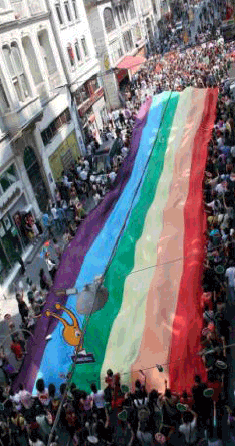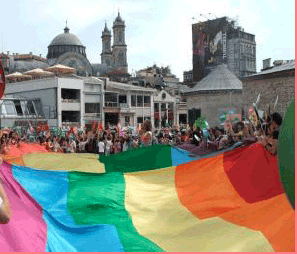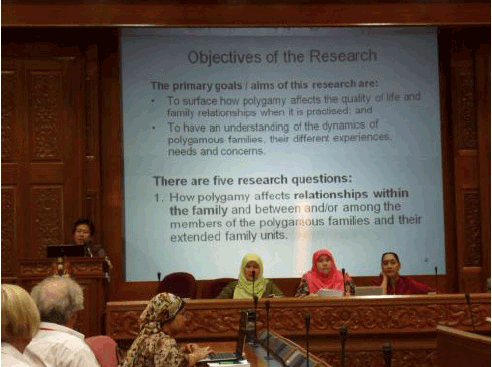Five international organizations urge world leaders to prioritize women’s human rights and comprehensive health care for all women at July summit
06/19/2012—(PRESS RELEASE) International human rights groups are urging world leaders attending next month’s global Family Planning Summit to ensure that any effort to increase the use of contraceptives be a part of a broader strategy to improve comprehensive sexual and reproductive health care and uphold sexual and reproductive rights for all women.
While contraceptive information and services are an essential part of the health services that women need throughout their lives, efforts to increase family planning services can have negative consequences if women’s fundamental human rights and reproductive autonomy are not protected—according to the joint statement issued today by the Center for Reproductive Rights, Amnesty International, the International Women’s Health Coalition, Development Alternatives with Women for a New Era (DAWN), and Realizing Sexual and Reproductive Justice (RESURJ).
Experts at these respected organizations have long found that severely negative consequences— including forced sterilization and coerced use of contraception—can result from family planning policies that condone or unintentionally lead to pressuring women to use contraceptives. Further, the summit’s primary focus on contraception must not divert attention from other reproductive health challenges that women face, including the denial of essential health care services to young, poor, and marginalized women.
Over 320 organizations, groups and individuals from more than 80 countries have endorsed the call for the Family Planning Summit and its organizers—the Bill and Melinda Gates Foundation and the U.K. Department for International Development (DFID)—to pay greater attention to women’s human rights.
“It is long past time world leaders came together to find solutions for the millions of women across the globe without real options and education when it comes to reproductive health and contraceptives,” said Nancy Northup, president and CEO for the Center for Reproductive Rights. “This initiative is critical to that effort, but lasting solutions must improve the full range of sexual and reproductive health care services available to women, so they can make the best decisions possible about their health and their family’s health.”
“We welcome more funding for family planning services, but not if it comes with targets and incentives for doctors to pressure women to ‘accept’ contraceptives,” said Françoise Girard, President of the International Women’s Health Coalition. “That formula leads to coercion of women, plain and simple.”
The groups identified several critical steps summit organizers and attendees can take to protect women’s reproductive autonomy and human rights in family planning programs; including developing initiatives that do not have unnecessary contraceptive quotas that could lead to coercive measures.
“Women’s rights to health, to life, and to live free from discrimination must be at the center of any discussions regarding family planning—a failure to do so can have serious consequences, ” Rajat Khosla, policy coordinator for health at Amnesty International.
Women, including young women, must have a clear role in the development and implementation of family planning programs. The groups stressed the importance of accountability and the ability to track and monitor family planning programs’ impact on women and their rights.
“Family planning cannot be a silo provided by itself, but must be integrated into overall sexual and reproductive health services and with the utmost protection and promotion of women’s human rights,” said Gita Sen, executive committee member of DAWN. “Civil society organizations cannot act alone as a watchdog for these critical issues; programme monitoring and evaluation need to include strong in-built mechanisms and indicators to ensure the highest standards of accountability.”
“Sexually-active adolescent girls and young unmarried women must have access to condoms and other contraceptives methods to protect their health and avoid unintended pregnancies. Services that are tailored to adolescent and young women’s needs must be front and center at the Family Planning Summit,” said Ximena Andion, member of the Coordination team at RESURJ.
The Family Planning Summit, which is scheduled to be held on July 11 in London, has a stated goal of giving an additional 120 million across the globe access to family planning information, services, and supplies by 2020.
###
The Center for Reproductive Rights is a global legal organization dedicated to advancing women’s reproductive health, self-determination and dignity as basic human rights.
The International Women’s Health Coalition (IWHC) promotes and protects the sexual and reproductive rights and health (SRRH) of all women and young people, particularly in Africa, Asia, and Latin America, by helping to develop effective health and population policies, programs, and funding.
Amnesty International is a Nobel Peace Prize-winning grassroots activist organization with more than three million supporters, activists and volunteers in more than 150 countries campaigning for human rights worldwide.
Development Alternatives with Women for a New Era (DAWN) is a network of feminist scholars, researchers and activists from the economic South working for economic and gender justice and sustainable and democratic development.
RESURJ is an international alliance of feminist activists seeking full implementation of international commitments to secure all women’s and young people’s sexual and reproductive rights and health by 2015.







